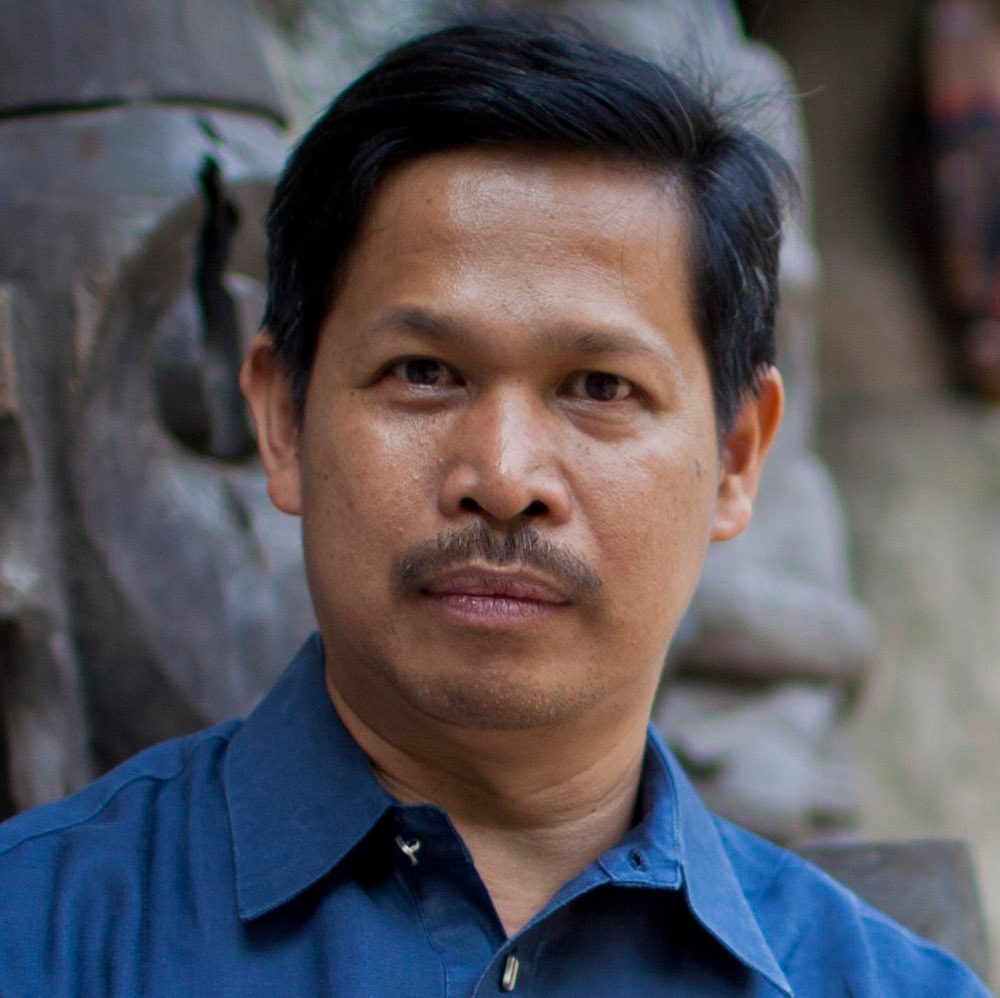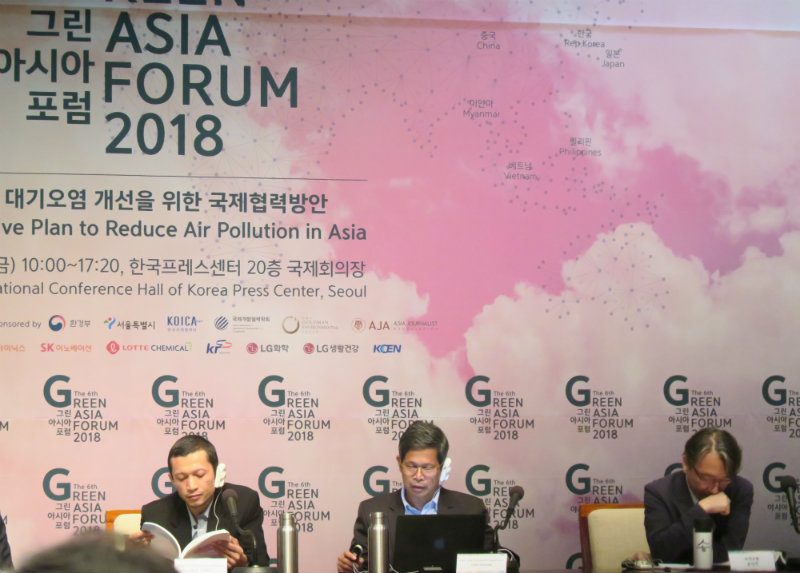SUMMARY
This is AI generated summarization, which may have errors. For context, always refer to the full article.
![[OPINION] Breathing out coal: How victims of the climate can be its protectors](https://www.rappler.com/tachyon/r3-assets/612F469A6EA84F6BAE882D2B94A4B421/img/B852A401D025432B8D905A019BEAE268/cc-protectors-copy.jpg)

This fifth of October, I was given the privilege of speaking in the Asia Green Forum hosted by the Korea Green Foundation in Incheon, South Korea. There I spoke about an issue at the heart of the environmental and energy discourse in our country: air pollution.
With our country’s overbuild of 10,423 MW worth of coal projects in the pipeline, the Philippines’ struggle against dirty energy is illustrative of the struggle of all vulnerable peoples around the world.
When we talk about air pollution, it is necessary to link it to the issue of carbon emissions and decarbonization. The recently released report by the Intergovernmental Panel on Climate Change (IPCC) indicated that man-made global warming caused by greenhouse gas emissions is set to persist and “will continue to cause further long-term changes in the climate system,” endangering the lives of human beings and ecosystems across the globe, most especially the impoverished, more vulnerable peoples from developing countries.
Where vulnerable people stand
Rather than being mere victims, these vulnerable peoples – many of whom are from the Philippines – asserted their demands given the intensifying disasters they face because of the climate crisis. The Paris Climate Conference’s goal of keeping the limit below 1.5° of average global warming was borne out of this. (READ: Facts are facts: World is warming, climate is changing)
Today, vulnerable peoples in Asia have gone from calling for a just climate target to calling for clear and strong policies towards energy transformation. Comprehensively reviewing development plans and energy projects at the national, local and regional levels, are being advocated along with the use of renewable energy, and abandon coal development as a matter of policy.
Here in the Philippines, there is much to be done to realize this transformation when our policymakers are clearly partial to coal in fueling its development aspirations. Last year, President Rodrigo Duterte issued Executive Order 30 (EO30), a proclamation to enable “energy projects of national significance” (EPNS) to secure all needed permits within a 25-day period.
Such projects usually take up to a year in order to get necessary documents, especially the approval of affected host communities. (READ: Philippines revs up flagging green energy engine)
One of the projects approved as EPNS – the 1,200 MW coal-fired powerplant by the Atimonan One Energy (A1E) corporation – is set to be constructed in my home province of Quezon.
The power station, if it would push through, will be the largest coal-fired energy project in the Philippines. While some local officials are enthused with the prospect of building this power plant in the coast of Atimonan, near the Lamon Bay Protected Area, surrounding residents have repeatedly opposed the plant, as it threatens to destroy their access to the sea, their livelihood, health, and the environment.

Presently, the Atimonan power station is caught in a controversy surrounding its power supply agreement (PSA) in the Energy Regulatory Commission, failing to undergo a public bidding. Which proves that it provides the least cost option for consumers. Nevertheless, proponents of the project like Quezon Rep. Danilo Suarez are confident that it will be constructed. EO30 and the declaration of the project as EPNS has augmented this confidence.
Abandoning coal
Recent developments in the global context have put us to shame.
As renewable energy technology continues to fall in price, countries in the EU and even the United States have begun to retire their coal plants, while developing countries like India have looked into manufacturing RE technology at a competitive level.
Ten years ago this December, the Renewable Energy (RE) Law of 2008 enacted our commitment to increase Renewable Energy’s share in our energy mix, the first of its kind in Asia. Today our energy mix remains coal-dependent, even increasing its share despite the RE Law in place.
At present, the capacity of RE to supply the Filipino people’s energy needs and to diminish coal’s share in emissions and air pollution remains taken for granted. This is a travesty, considering how RE has complemented existing sources of livelihood among farmers, fishers, and other sectors, and how it has delivered clean, affordable energy to far-flung areas in the country. (READ: Environmental groups urge PH, ASEAN to join global coal phase-out)
According to a study by Harvard and Greenpeace, 40,000 deaths will be caused by air pollutant emissions from coal-fired power plants in Southeast Asia, South Korea, Japan and Taiwan, increasing to 70,000 by 2030 if coal-fired power plants presently planned or under construction go ahead. At least 55,000 of these will be in Southeast Asia alone. I wonder how many of these will be Filipinos.
Policymakers have no shortage of motivation in abandoning dirty and deadly energy, given our climate commitments, and the succession of climate disasters we face yearly. What’s lacking is the sincerity and will to transition away from coal and the myths that surround it, if not also empathy for people who stand to suffer the most from the pollution caused by our coal addiction.
Every time we are devastated by typhoons, like Super Typhoon Yolanda in 2013 and Typhoon Ompong just this year, the world watches as we try to show our resilience and bounce back from the destruction such disasters have caused.
But only by shifting away from dirty energy – the leading cause of climate change – can Filipinos truly move from being tagged as victims of the climate towards being known as its protectors.
Our story of survival in a changing climate does not end after disasters. It carries on with what we do with our environment between the storms and droughts.
How we care for the air, our water and land resources, and for the people who are most affected by their destruction: this is where we must make our mark. – Rappler.com
Father Edu Gariguez is the executive secretary of Caritas Pilipinas, the Catholic Bishops’ Conference of the Philippines’ national secretariat for social action. He is one of only 3 Filipinos to receive the Goldman Environmental Prize, also known as the Green Nobel Prize.
Add a comment
How does this make you feel?
There are no comments yet. Add your comment to start the conversation.